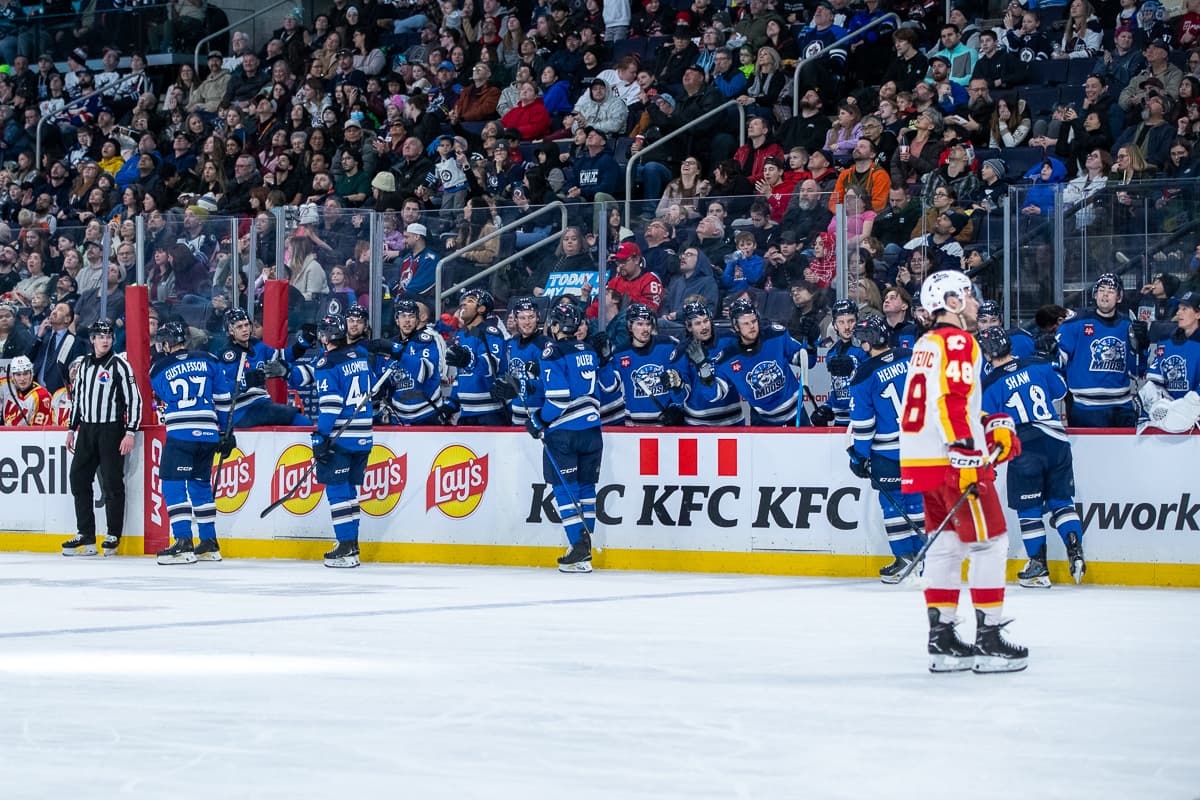He was big, strong, muscular, boyish and accessible. He was a superstar in every sense of the word. And when he signed that contract with Ben Hatskin and the Winnipeg Jets on June 27, 1972, Robert Marvin Hull changed hockey forever.
On Monday, the legendary Bobby Hull, one of the two men who brought big league professional hockey to Winnipeg, passed away at the age of 84.
Hull was charismatic, idiosyncratic, outgoing, popular, oft-criticized and by some, disliked, but during his time there was no one more important to the development of the professional game both on and off the ice.
In 1961, Hull helped lead the Chicago Blackhawks to their first Stanley Cup in 23 years; he was the second player (after Rocket Richard) to score more than 50 goals in a single NHL season; he set the record of 54 in 1966 and broke it by four goals a couple of seasons later and along with Chicago teammate Stan Mikita he helped popularize the curved hockey stick blade in the NHL.
But it's what he did in 1972 that changed the face of professional hockey at every level and brought Hatskin's hockey dream to life.
Nicknamed the Golden Jet by a Chicago sportswriter because of his long strides, blazing speed and flowing blonde hair, Hull was a magnificent leftwinger who professed to be a farmer at heart. He had been the greatest player in the history of the Blackhawks for the past 15 years when Hatskin decided that he was the one man who could give the Jets and the new, outlaw World Hockey Association, the credibility it needed.
In December of 1971, Hatskin called an accountant named Harvey Weinberg. He was Hull’s business manager/agent. At the time, Hull was in the process of negotiating a new contract with the Hawks because he had no other choioce. Due to the NHL’s Draconian reserve clause, the Hawks owned Hull’s rights until the day they wanted to forfeit them. It was a form a slavery on the rich and talented. Hatskin believed that if he offered the right amount of money, the 32-year-old Hull might consider leaving the NHL.
"I felt, overall, we'd get a good percentage of NHL players,” Hatskin told the Winnipeg Tribune back in 1973. “But getting a superstar like Hull would mean instant-league in the minds of the public and the news media. Also it would cause other players to take the WHA seriously. There were only three or four superstars in hockey. All but Hull were tied up. He was our trump card. We went after him and we got him."
Hatskin went after him by telling Weinberg, “We’ll pay him a million bucks.” At first Hull and his agent thought it was nothing but talk, but as Hull became more frustrated with the Blackhawks, the offer started to have some serious merit.
In the meantime, no one in the Blackhawks organization believed for a minute that the Golden Jet would leave the NHL. For somewhere in the neighborhood of $250,000, paid over three seasons, Hull would sign with the Hawks. “Winnipeg didn’t have a million bucks and the rest of the league wasn’t really going to put up the money to give one team a superstar,” so why worry. The Hawks believed all the talk was nothing more than a publicity gimmick.
Finally, on a beautiful afternoon in early June, Hatskin returned to Winnipeg from a meeting in Denver with Hull and Weinberg. At the end of the session, Hull shook hands with the Winnipeg owner on a deal that would make the WHA a legitimate big time hockey league and would give Winnipeg the brightest star in its sporting history.
After the meeting, Hull told the Chicago Tribune, “If Winnipeg pays, I’m gone.”
Back in Winnipeg, Hatskin called a news conference and with a battery of microphones under his nose, he told the world: “I’m 99.99 per cent sure that he’ll sign. It looks good.”
A few days later, Weinberg called Hatskin and hockey changed forever. Hull said Winnipeg accorded him the best of two worlds after he signed contracts worth $2.75 million that would cover the next 10 years of his life. Late that afternoon at Portage and Main, Hull signed a very public contract with the Jets. The size of the turn-out surprised Hull as traffic backed up for blocks on three sides of one of Canada's busiest intersections -- Portage and Main -- at the peak of the 5 o'clock rush hour. People stood on their parked cars to catch a glimpse of the Golden Jet.
"I was a little pessimistic how people would react toward me," Hull told the Free Press. "People getting a lot of money sometime bring out the envy in others, but these people were great. The thrill is certainly one of my two greatest. It was a lot like scoring the 51st goal."
No. 51 in the 1965-66 season snapped Rocket Richard's 21-year-old record of 50 goals. Hull, ultimately, scored 54 goals that season, then scored 58 goals in 1968-69.
The terms of what was considered to be the largest contract ever given to a North American professional athlete (at the time), were as follows:
- He received an annual salary of $250,000 from the Jets for thenext five seasons.
- For the next five seasons he would receive $100,000 per year as a club executive.
- He received $1 million in cash from the World Hockey Properties Ltd., a branch of WHA owners who will find new, major endorsements for Hull whose share of all contracts will be 25 per cent.












Comments